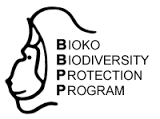environment jobs Est. in 1994. Delivering Environment Jobs for 30 years
This job listing is no longer active.
Please use our Environment Jobs Search to find current vacancies.
| Title | Caldera Expedition 2011 (Voluntary) |
| Posted |
|
|
|||||||||||||||||||||||||||||
| Description |
Each year in January, the Bioko Biodiversity Protection Program organizes a 3-week expedition to Bioko Island's remote and rarely visited Gran Caldera de Luba to conduct a census of primates and sea turtles. We need approximately ten volunteer research assistants to help with the census. Research assistants take part in two principal activities: counting diurnal primates in primary rainforest in the Caldera, and tagging sea turtles on the black-sand beaches of the southern coast of Bioko Island. While the expedition is a valuable source of field experience for those studying conservation biology, ecology, primatology, or anthropology, many research assistants find the trip alone is one of the formative experiences of their lives. For those who have never been to Africa, never camped in the bush, never been to places where tourists don't go, and never seen life in those corners of the world that the twentieth century largely forgot, the trip is eye-opening and worthwhile far beyond the practical experience. To apply for the January 2011 expedition, fill out the application. We conduct the census to determine encounter rates for each of the primate species, and to compare those encounter rates with results from previous surveys. Essentially, we are documenting the population levels of these rare monkeys to determine the impact of both bushmeat hunting and natural conditions (drought; severe storms) on their numbers. We spend approximately two weeks inside the Caldera itself, a natural refuge with spectacular gorges and steep walls. Few people have ever been in this area because it is accessible only during the dry season (December through February) and then only after considerable effort. We camp in tents, eat rice and beans by the campfire, bath in the Rio Tudela waterfalls, and spend each day participating in small 2 or 3 person survey teams, walking census trails through the forest and carefully recording all encounters with monkeys and other forest animals. The expedition will also include some time on the Island's southern beaches, documenting the nesting of four species of marine turtles, and in the village of Ureca, visiting with the local people. Expedition LeadersThis next expedition, scheduled for January 2011, will be led by BBPP Director Gail Hearn and BBPP Senior Conservation Biologist Tom Butynski. Other personnel with prior Caldera experience will share leadership responsibilities. Local participants will include professors and students from the Universidad Nacional de Guinea Ecuatorial. Our local field assistants, especially Filemon Amara and Cirilo Riaco, will help with the census itself. Expedition VolunteersTypically, our volunteers are university students with an interest in primates and tropical biodiversity, but other enthusiastic adults with a variety of interests are also appropriate participants. We expect a three week on-island commitment. The cost of participation (all on island expenses except restaurant meals) is $3000 for three weeks. Although BBPP does not offer specific scholarship aid, many students participate for academic or "winter term" credit, thereby qualifying themselves for other forms of aid at their home institution. We expect our volunteers to participate fully in the primate census, and to maintain their own field notes plus a daily log/journal as an official record of activities. You will be trained in primate and nesting sea turtle census techniques. You will get experience in operating field equipment including GPS, satellite phones, generators, tape recorders and Zodiac boat. The expedition is a great way to get a lot of serious field experience in a very short time. Many past volunteers have used their participation on this expedition as a stepping stone to a career in wildlife research and conservation. Payment ScheduleApplications are processed beginning in May with a final deadline of September 30, 2010. Applicants will be notified of their status (accepted/waiting list/no space this year) within several weeks of application. A non-refundable deposit of $500 is due by October 15, and the balance ($2500) is due by November 15. We usually depart around the first of January. Transportation arrangements are the responsibility of each participant, but Iberia Airlines has at times offered a RT JFK/Malabo flight for less than $1000. Sometimes we have cancellations, so even if the deadline has past, a late application can be successful! For more information, contact Gail Hearn. |
